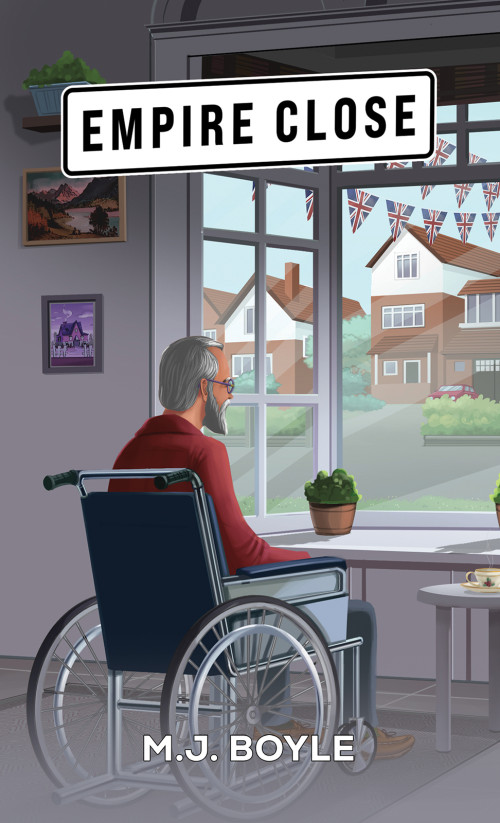
By: M.J. Boyle
*Available directly from our distributors, click the Available On tab below

M.J Boyle was born in the mid 1950s in the North, grew up in the South of England but has spent her adult life in Europe. Her strong ties to her home country and her sincere affection for Britain influenced her career in teaching English as a foreign language.
As a university lecturer and Business English teacher she remains an avid observer not only of British society but also of the political landscape in Great Britain.
She lives with her family in the South of Germany.
M.J. Boyle succeeds, once again, in taking an inspired look at British society. Empire Close is where Ted (the main character) has spent his entire married life. There are only six houses, but each has a story to tell. As Ted sits by his bay window looking out, feeling nostalgic and confined, he recollects the people who now have left the Close. The families he felt so akin to, the families he so respected. As they moved out, others, with whom he felt no bond whatsoever, moved in. As stated on the book cover, “when a man faces his destiny, destiny ends and man comes into his own” and accordingly Ted is forced to face up to the fact that his house also harbours a story. One he knew nothing of, one which will potentially change his life. Ted is a perfect protagonist –on the one hand you want to despise him for his snobbery, on the other you feel compelled to feel sorry for him in his situation. Whichever emotion prevails, you feel you`ve enjoyed a good read.
The world seen through the eyes of a disabled, wheel-chair bound protagonist recalling his life during the British Empire and post war era; nostalgic for some past “Britishness” amidst a community unwittingly dysfunctional, snobbish, ignorant and bigoted. All changing with the passing of the Nationality Act in 1948, and the xenophobic reactions to a series of newcomers seen to be “infiltrators” somehow poisoning the respectability and (false) bonhomie of the original community. The protagonist trapped both physically and emotionally by his disability, remains stuck in a groove while unknown to him his wife is quietly helping the newcomers, whose responses after her death show deep intelligence, natural kindness and true neighbourliness. This insightful novella is at first an indictment of those who deny our long history of new settlements (Roman, Saxon, Viking and Norman) and the renaissance of culture and language they brought and finally a hymn to modern day multiculturalism. Ted’s final words are a warning to those who may wish to return to some perverse and cosy Britishness.
We use cookies on this site to enhance your user experience and for marketing purposes.
By clicking any link on this page you are giving your consent for us to set cookies